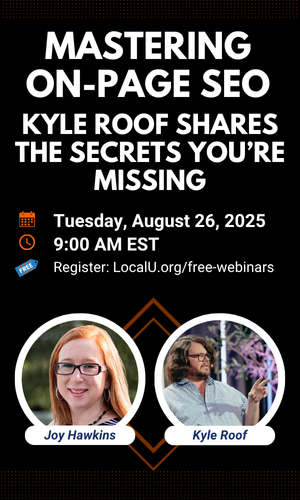- Joined
- Mar 15, 2016
- Messages
- 474
- Reaction score
- 252
Review-Researching: 3 Examples of Reviews in the Buyer?s Journey

Read the rest of Andrew's post here. He goes on to showcase 3 examples from real brands of how inexperience, perception, and past experience influences how reviews influence consumers' research.


Customers won?t tell you.
They know you?d love to know what they?re thinking. To get an inside look at how they make their decisions. But the fact of the matter is, they won?t share.
Because they don?t really know.
Make no mistake, customers think they know about decision making. Ask them and they?ll tell you about their ?rational decision making process.?
- First, they determine what they need
- Next, they assess qualified candidates
- Finally, they select a winner
You?ll get some variation depending on who you ask but it?s usually something similar. It?s completely untrue.
Logical decision making is a myth
Antonio Damasio, Professor of Neuroscience at the University of Southern California made a startling discovery.
His research focused on the areas of the brain responsible for emotion. His work focused on patients who had a damaged limbic system. These patients were normal in every way, except for one thing.
They weren?t able to feel emotions.
During the course of his research Damasio discovered the people in his study all had the same unusual problem.
None of them could make decisions.
They were able to describe what they were supposed to do in logical terms, but without emotion, they found it incredibly difficult to make even the simplest of decisions (e.g. what to eat).
Damasio discovered that, at the point of decision, emotions are vital for decisions. What does this mean for us, for your customers? It means that every decision, even the ones we believe are purely logical are always based on emotion.
Customers are emotional decision makers
Contrary to popular belief, we?re all emotional decision makers. Emotion is a fundamental part of choice. It?s what customers won?t tell you, not because they aren?t willing, but because they don?t know.
Whether we like it or not, we?re all dependent on emotion.
What drives emotion? Our thoughts, information. The emotions your customer experiences come from three simple areas.
1. Inexperience. What you don?t know can hurt you. As customers we all understand this intuitively. Naturally, customers have questions. Are there any hidden fees? Is this safe? What am I getting myself into? These unanswered questions create a wide variety of negative emotions. Answering customer questions relieves these negative emotions.
2. Past experience. Customers are far more likely to approach you with fear if they were burned by a dishonest seller in the past. Did a competitor?s product fail shortly after purchase? Expect skepticism and doubt.
3. Perception. Politicians, used car salesmen and lawyers are often viewed as sleazy and dishonest. When there?s an industry or company bias at play, customers are immediately, automatically resistant. If you?re perceived as authoritative or prestigious, customers approach with a sense of awe and respect.
When a customer is looking to buy, one of these three scenarios is at play. But what does that look like? To find the answer, let?s look at a few product examples.
Read the rest of Andrew's post here. He goes on to showcase 3 examples from real brands of how inexperience, perception, and past experience influences how reviews influence consumers' research.




